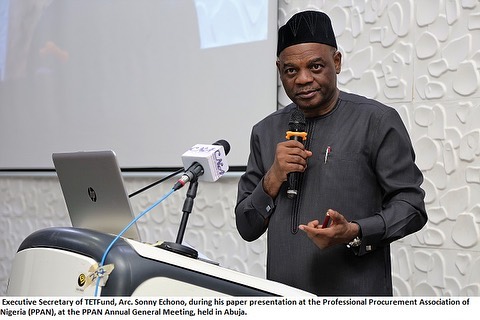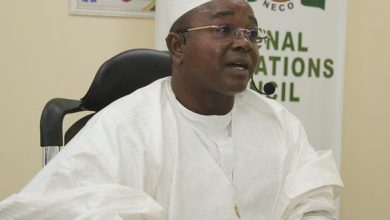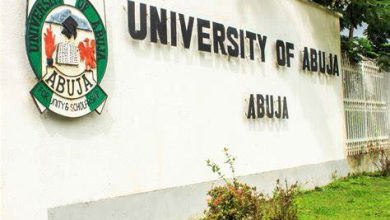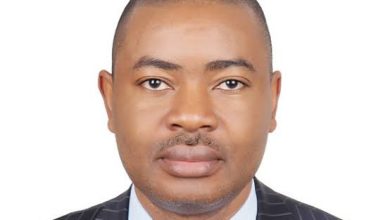‘No alternative to technology’ — Echono tasks tertiary institutions on ICT adoption, warns of wasted investments

Sonny Echono, executive secretary of the Tertiary Education Trust Fund (TETFund), says tertiary institutions to needs to urgently embrace technology in teaching, research, and administration.
Speaking in Abuja on Monday at the opening of a two-day workshop on Blackboard/TERAS adoption and usage in beneficiary institutions, Echono warned that billions of naira invested in ICT infrastructure risk being wasted due to underutilisation.
The workshop was organised by TETFund for registrars, bursars, directors of academic planning and ICT, and thesis repository managers.
He lamented that despite TETFund’s early investments in digital platforms such as the tertiary education, research, applications and services (TERAS), many universities, polytechnics, and colleges of education are still lagging behind in ICT adoption.
He noted that Nigeria’s rapidly growing population and limited classroom spaces make technology the only sustainable pathway to expanding access to quality education.
“We are no longer confined to the four walls of classrooms. With just an android phone or a device, students should be able to access content, participate in learning, and acquire skills,” Echono said.
“There is no alternative to technology if we must prepare our youths for the opportunities ahead.”
He also decried the slow transition to digital platforms, noting that some institutions still submit hardcopy requests to TETFund despite clear directives for e-submissions.
He added that robust and regularly updated websites should be a minimum requirement for schools, describing many as “embarrassingly outdated””
He recalled the successes recorded during the COVID-19 lockdown, when TETFund partnered state governments, the Nigeria Television Authority (NTA), and radio stations to broadcast WAEC syllabus-based lessons.
That year, he noted, Nigeria recorded one of its best WAEC results, underscoring the potential of technology to transform learning.
Expressing concern about global rankings, Echono said Nigeria currently places 189th worldwide and 25th in Africa in education competitiveness, behind smaller countries like Rwanda and Mauritius that have leveraged ICT to advance their systems.
“Government has done its part by providing the infrastructure. But when equipment is procured and platforms created and they are not being used, that is the very definition of waste,” he warned.
He urged heads of institutions to champion the use of TERAS and other platforms by lecturers and students, stressing that going forward, more than half of TETFund’s interventions would focus on ICT rather than physical infrastructure.
The TETFund boss also linked Nigeria’s slow development to poor technology adoption across key sectors, contrasting the country’s struggles with China’s rapid transformation through deliberate investment in knowledge and innovation.
“We can do the same if we decide to do the right thing. The right thing starts with our education system. The building block of every nation is knowledge,” he said.
Echono appealed to tertiary institutions to populate their websites with relevant data and ensure full onboarding of staff and students onto TERAS.
Joseph Odo, TETFund’s director of ICT, said the workshop was designed to deepen understanding of the Fund’s digital platforms and strengthen collaboration among beneficiary institutions.
“This is part of our engagements with registrars, librarians, ICT directors, repository managers, and academic planners to ensure everyone understands the interventions we are providing,” Odo said.
“The world is moving fast technology-wise, and we cannot afford to be left behind.”
He explained that the sessions, which will hold across all six geopolitical zones, focus on strengthening the use of TETFund-funded platforms that aggregate data for planning and improve teaching, research, and learning outcomes.
Odo added that TERAS is evolving into “an educational lifestyle” for students, lecturers, administrators, and government planners.





